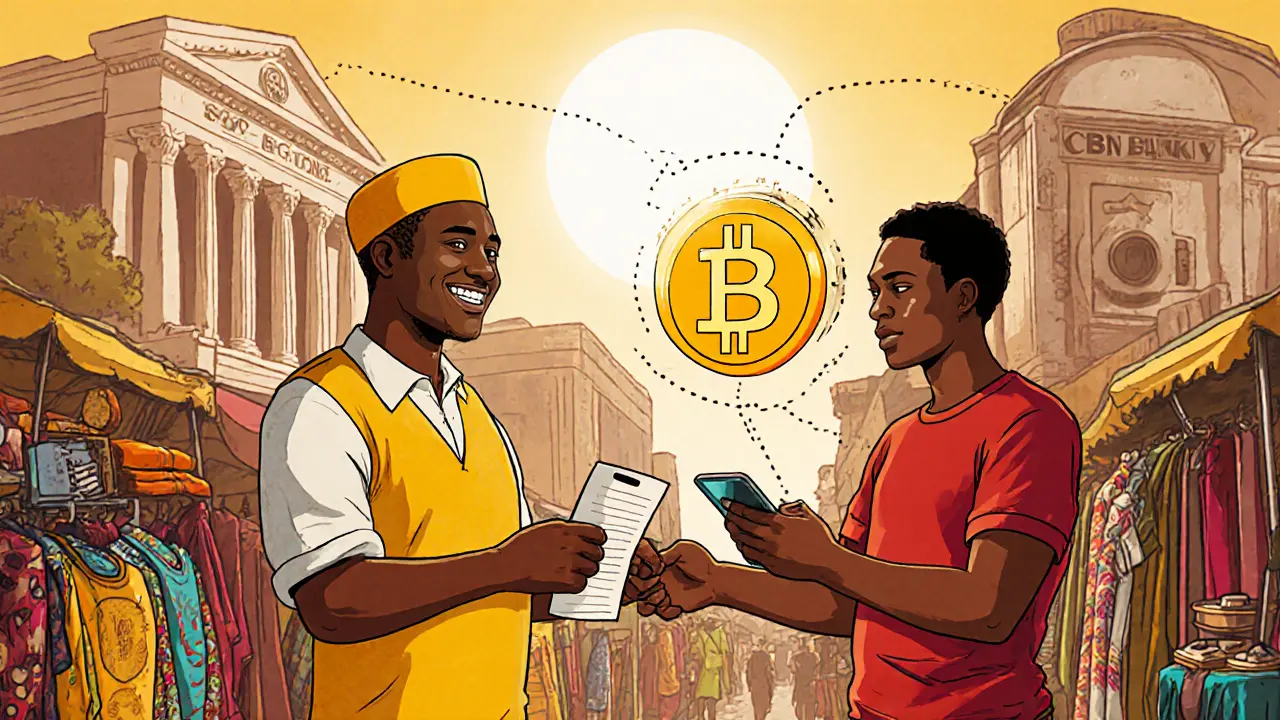Crypto Payments Nigeria: How Digital Coins Are Changing the Way Nigerians Pay
When you hear Crypto Payments Nigeria, the practice of using cryptocurrencies to send, receive, or settle value in the Nigerian market. Also known as digital payments in Nigeria, it has become a real alternative to the shaky naira.
At the heart of this shift are Stablecoins, crypto tokens pegged to fiat currencies like the US dollar that keep price swings low. Stablecoins enable merchants to price goods in familiar terms while still benefiting from fast blockchain settlement. Another pillar is Mobile Money, phone‑based wallets and payment apps that let users move cash without a bank account. In Nigeria, mobile money platforms already host millions of users; linking them to stablecoins creates a seamless bridge between cash and crypto.
Regulation plays a huge role, too. The Central Bank of Nigeria (CBN), the country's monetary authority that issues policy on fiat, digital assets, and payment systems has issued guidance that both restricts and legitimizes certain crypto activities. Understanding CBN’s stance is essential because it determines which tokens are allowed, which exchanges can operate, and how AML/KYC checks are applied. Speaking of platforms, a Cryptocurrency Exchange, online service where users can trade, buy, or sell digital assets acts as the gateway for converting crypto to local currency and back. The interaction between stablecoins, mobile money, CBN policies, and exchanges forms the ecosystem that makes crypto payments possible in Nigeria.
Key Components That Power Crypto Payments in Nigeria
First, stablecoins like USDC, USDT, and the locally‑focused e‑Naira provide the price stability needed for everyday transactions. Because they stay within a 1% band of the dollar, businesses can accept them without worrying about sudden losses. Second, mobile money operators such as Paga, OPay, and MTN Mobile Money are already built into the daily lives of Nigerians; integrating these services with wallet apps lets users top‑up crypto balances instantly, bypassing traditional bank queues. Third, the CBN’s recent “digital asset framework” outlines which tokens are considered lawful and which exchanges must register. This framework pushes compliant exchanges to adopt stricter KYC procedures, which in turn boosts consumer confidence. Finally, leading exchanges like Binance, OKX, and local platforms such as Quidax provide the liquidity needed to swap stablecoins for naira or other crypto assets. When you combine a stablecoin, a mobile‑money‑enabled wallet, and a regulated exchange, you get a payment flow that’s fast, cheap, and largely independent of the faltering fiat system.
All of these pieces interact in predictable ways: stablecoins reduce volatility, mobile money increases accessibility, CBN regulations shape compliance requirements, and exchanges provide the conversion infrastructure. That means a merchant can accept USDC through a wallet linked to their OPay account, instantly convert the USDC to naira on a compliant exchange, and settle the sale without ever touching a traditional bank. For consumers, the path looks just as smooth – scan a QR code, confirm the amount, and the transaction finalizes in seconds. This seamless loop is why crypto payments are gaining traction across Lagos, Abuja, and the growing tech hubs in the south‑east.
Below you’ll find a curated collection of articles that dig deeper into each of these elements. We cover how stablecoins are tackling volatility in 2025, the role of cross‑chain bridges in enabling token swaps, real‑world smart‑contract use cases that power automated payments, and the latest regulatory updates that affect crypto exchanges in Nigeria. Whether you’re a developer building a payment app, a small business owner looking to accept crypto, or just curious about the future of money in Nigeria, the posts ahead give you practical steps, risk assessments, and the latest market insights to help you navigate this fast‑moving space.
Are Crypto Payments Allowed in Nigeria? Legal Framework, Licensing & Tax Insights
by Johnathan DeCovic Jun 26 2025 13 CryptocurrencyCrypto payments aren't illegal in Nigeria but aren't legal tender either. Learn the 2025 regulatory shift, licensing rules, upcoming tax regime, and how to pay safely with SEC‑approved platforms.
READ MORE
